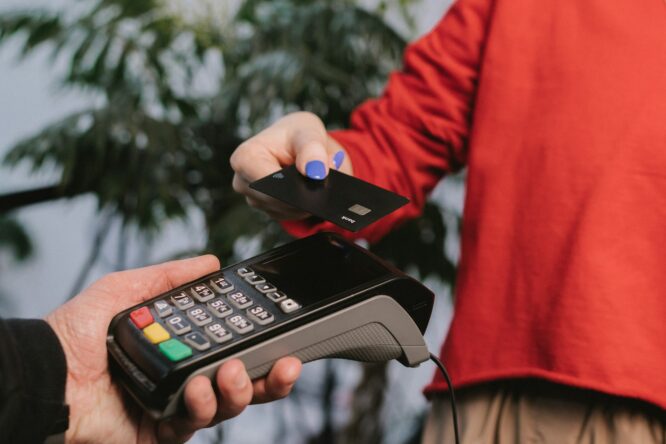It’s not always the big purchases that drain your bank account—it’s the little ones that fly under the radar.

The habits that feel harmless in the moment but quietly stack up until payday feels like a magic trick: here one minute, gone the next. These are the everyday expenses that don’t scream “luxury,” but your bank balance definitely notices. If you’ve ever looked at your statements and thought, “Wait, how is it gone already?”—this list might explain a few things.
1. Mindless tap-and-go spending

Contactless payments are great for convenience, but they also make spending feel almost abstract. When you’re tapping your card for coffee, snacks, or quick bits at the shop, it doesn’t feel like spending real money. However, it adds up fast. A few small transactions a day might not raise any red flags, but over a month? That invisible £3 here and £5 there quietly becomes a financial leak.
2. Subscriptions you forgot you had

Streaming services, fitness apps, cloud storage, random trial sign-ups you never cancelled—those recurring charges slip through unless you’re actively checking for them. Most people are paying for at least one thing they haven’t used in months. It’s not just about waste—it’s about autopilot spending. When the cost is low and the billing is automatic, it’s easy to forget it’s even happening. Sadly, your bank balance definitely hasn’t forgotten.
3. Food delivery fees and minimum spend top-ups

Ordering in might feel like a treat, but between service fees, delivery charges, and padding your order to hit a minimum, you’re often paying way more than if you’d just cooked, or even picked it up yourself. What feels like a lazy-night solution turns into a £20 meal you could’ve made at home for a fiver. It’s not just the cost of food—it’s the hidden extras that sneak in.
4. Quick convenience store runs
 Source: Unsplash
Source: Unsplash Just popping in for milk or a snack? You’ll probably leave with three other things you didn’t plan to buy. Convenience shops are designed for impulse grabs, and they rarely offer the best prices. It’s the unplanned nature of these trips that does the damage. You don’t budget for them, and they don’t feel like real “shops,” but they still hit your account like one.
5. Excessive takeaway coffee

One coffee doesn’t break the bank, but five or six a week? That’s easily £60–£80 a month if you’re going for the good stuff. It’s not just about caffeine—it’s about how easily this daily habit blends into the background. If it’s part of your morning routine, fair enough, but recognising how much it adds up can make you think twice about the casual second cup in the afternoon that you didn’t really need.
6. Forgotten annual renewals

That magazine subscription, domain name, or app you signed up for last year? If it renewed automatically, there’s a good chance it slipped under your radar, especially if the payment came out on a quiet day in your account. These are often the worst offenders because they don’t even happen monthly. You forget they exist until you’re checking transactions and wondering where £49.99 just went.
7. Rounding up on “deals” you didn’t need

“Buy one more item and save 10%” sounds great—until you realise you spent an extra £15 to save £2 on something you weren’t even going to buy in the first place. These types of nudges feel like savings, but act like spending. Shops know how to make you feel like you’re winning, but unless it’s something you needed anyway, those “savings” often cost you more in the long run.
8. Unused gym or fitness memberships

Signing up felt like a solid life decision—but two months in, you’re too busy, too tired, or just not going. Meanwhile, the direct debit rolls on quietly in the background. Even if it’s “only” £30 a month, that’s over £350 a year going to something you’re not using. Cancelling doesn’t mean you’ve failed—it just means you’re being realistic about your money.
9. App store purchases

Whether it’s a new game, a digital upgrade, or an in-app subscription, App Store charges can sneak in under your nose. They’re usually small, easy to justify, and often forgotten as soon as they happen. Over time, though, they add up—especially if you’ve got kids or multiple devices linked to one account. A few £2.99 purchases here and there might be why your statement looks a bit too busy.
10. Relying on contactless travel without checking fares

In cities with tap-in-tap-out transport systems, it’s easy to trust that the system’s charging you fairly. But peak rates, failed caps, and accidental taps in the wrong zone can make your commute more expensive than you think. Without tracking your travel spend, you could be leaking money on routes you don’t even need or journeys you could’ve walked. Convenience often hides the cost.
11. Impulse online shopping “because it’s only £10”

That hoodie, candle, mug, or phone case that looked fun at 11pm? You probably wouldn’t have bought it in a shop—but online, with free shipping and saved card details, it takes two taps to spend money you weren’t planning to. These little online joys feel harmless because they’re cheap and solo. But do them a few times a week, and your account will start feeling it—even if your wardrobe barely changes.
12. Ignoring “just a couple quid” bank charges

Late payment fees, overdraft charges, bounced direct debits—each one might feel like a small hit, but they compound. These kinds of charges are often accepted without question, even though they’re avoidable with a little planning. They’re not flashy, but they are consistent. And banks count on people not noticing. A few £5 charges a month can turn into £100+ over the year—quietly eating into your savings without you realising.



